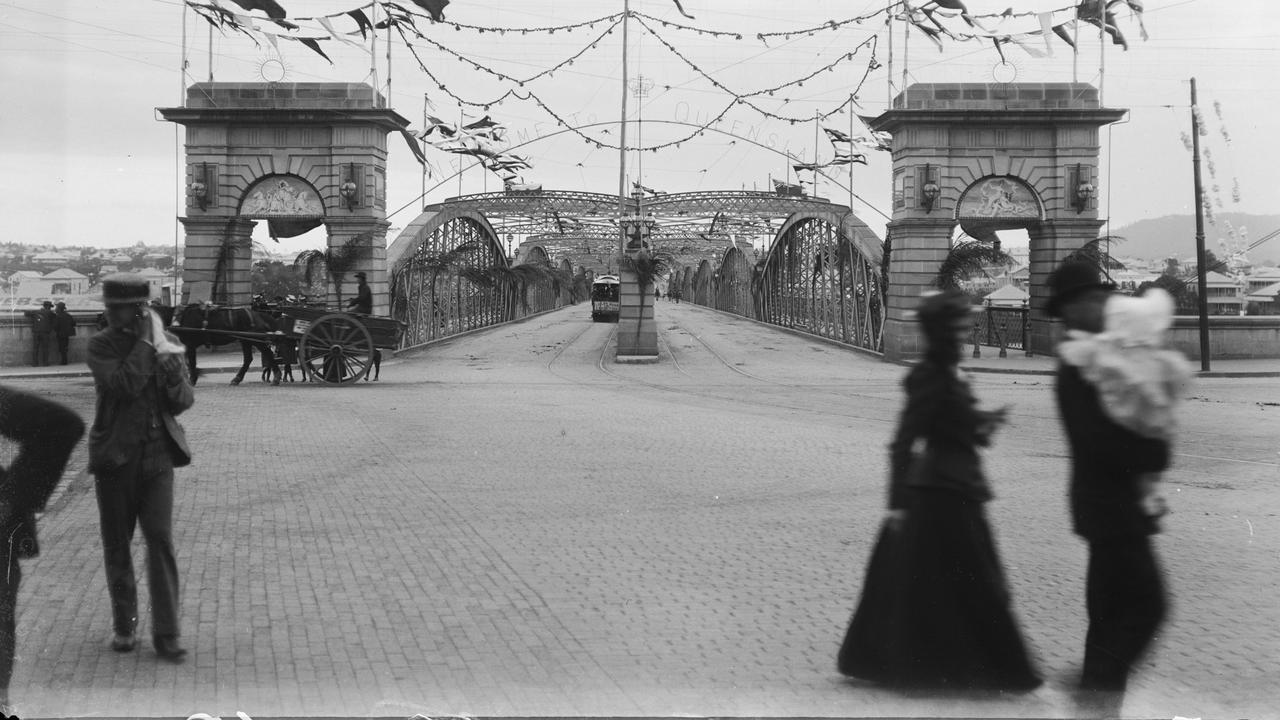Ellena Savage; a young life against the grain
Ellena Savage’s outstanding debut book demands readers lift their game.

To encounter Ellena Savage’s voice for the first time is to be unmade, to have one’s rusted-on assumptions ground back to metal base. Sparks fly, nerves are abraded.
Her writing combines rhetorical esprit and brutal self-sanction, aching honesty and unapologetic intemperance, all of it driven by a subtle, theoretically equipped intelligence that prefers slumming it at culture’s street level.
Taken as a whole, the Australian writer’s work, published in various literary journals and now in her first book, Blueberries, demands you raise your game: first as a reader, second as an ethical being.
Blueberries is an artfully inapt title for a collection so sharp in flavour. The 15 essays contained here wear various guises, from experimental prose to poetry, memoir to polemic to cultural critique.
Yet all emanate from the same experience: that of a woman who, rather than striding out in a masculine sense, marking and shaping the world as she goes, is marked and shaped by that world instead. This is an account of life as it is written on the body of its subject.
Sexual violence is the first dark fact of female experience.
In the opening essay, Yellow City, Savage recounts a narrow escape when she was a teenager visiting Lisbon in 2006. One night, two young men she met by the river Tagus lured her back to a city apartment, where they attempted to rape her. She only escaped through a combination of guile and flat-out desperation.
Savage went to the police: a criminal trial resulted. But she left Portugal soon after and was never informed of the outcome.
Eleven years later, visiting the city again with her partner, Savage hopes to retrieve documents that detail what occurred.
Yet the essay’s form complicates this straightforward account. Memories of the evening in question are cancelled, even as she recalls them, by italicised alternative versions of events, insinuating in their ambiguity.
Information about the trial recedes as she pursues it, thanks to language barriers, mulish authorities and yards of red tape:
I am not an idiot. I understand that just because something happened to me doesn’t mean the suppressions of time and the failures of memory and the most human of all errors, bureaucratic filing systems, should somehow suspend themselves and consort to deliver me exactly what I’m looking for.
“It does not escape me, either,’’ Savage continues,
that what I’m looking for does not exist. I want a copy of the investigation, which has been archived for 10 years now and is seemingly impossible to dredge up; I want to find out how Salvator and Tomas described the events in their words, if only to scoff at their lies; I want to know what judgment concluded the trial, if only to suffer through a not-guilty verdict.
But, she resolves, none of this really matters: ‘‘None of this pushes the factory reset button, or assists my interior life, except to make me remember things my body has buried.’’
Savage’s body is once again the genesis of broader political and cultural criticism in the title essay of the collection. There we meet the author during the time she was attending a graduate program at an American liberal arts college: typing away in her room, naked except for a black silk robe, eating blueberries.
The self-image presented, one of luxurious sensual indulgence, is an intentional sleight-of-hand. Savage is also sitting on a ‘‘rubber prison-issue’’ mattress and types those words on a $200 laptop. It is the disjunction between the author’s modest feast and her actual economic condition that is the point of the piece.
Proceeding via paragraphs with repeated opening lines (‘‘I was in America at a very expensive writers’ workshop’’, in apparent homage to poet Eliot Weinberger’s classic essay, What I heard about Iraq in 2005), Savage’s essay retains its intensely personal character while expanding outward, to interrogate the lazier, more self-congratulatory hues of the liberal spectrum:
… but still sometimes I shop at the independent grocer with the wrinkled capsicums out of a confused sense of class loyalty, and to make up for it I grow my own food a little and badly, and I scatter these pea-green snail pellets because I fear for the saplings, and the pellets are of course poison, I am poisoning the soil, and in my culture, this niche, comfortable and rather unpleasant culture, this sort of implies that I am a bad person and I don’t consider myself that, not really, but I am a person trapped inside a matrix of bad ideas bad histories bad reactions.
Though Savage’s thought emerges from and proceeds in sympathy with the historical claims and hopes of the political left, she is too restless and idiosyncratic a thinker to feel comfortable re-treading old nostrums.
But if the old modes and methods of resistance no longer work, or have been co-opted by capitalism, what does the individual who craves liberty or justice or plain decency do instead? How does one wake from the bad matrix of contemporary life?
For Savage, the way to fight against a world so manifestly unfree, yet so capable of furnishing the illusion that freedom is what it provides, is to make one’s personal independence — in terms of work or travel, erotic existence or creative undertaking — as removed as possible from the norms and obligations laid down for us by gender, class, education.
That version of freedom bears no resemblance to lifestyle choices or brand identification; it is a life lived against the grain — so bloody-minded in its refusal of the usual comforts or caste markers that it becomes symbolic of rebellion. This is the kind of autonomy Savage aspires to.
It undergirds, for example, the romantic encounters she engages in throughout her 20s, some of which are described — briefly, cuttingly — in an essay titled Holidays with Men:
We bickered the whole way along the beach and through the pretty shrubs in the way holidaying couples who will not stay together very long are prone to, protracted arguments which are, perhaps, designed to bring the couple closer together by testing the limits of their love, but are in fact simply exhausting.
These are often, as above, failed encounters, blind emotional alleys. And yet, despite writing in the later essays from the perspective of a newly minted thirty-something alongside a steady life partner with whom she owns a flat in Athens, Savage refuses to fully renounce the liberatory possibilities that love can bring:
‘‘Love shows us that the certainties we accept are arbitrary, flimsy paper bits. An entanglement of love-struck, horny auras interrupts the sense of urgency otherwise governing a person’s existence in the world.’’
The author treats travel in much the same way. An inveterate sojourner from the age of 18, Savage is convinced her wanderings disrupt the gravitational pull of real estate and the way it anchors us to place.
She views the debt home ownership brings as an obligation that is hard to distinguish from slavery; and she’s aware, too, that the sense of stability it brings can lead to false complacency:
‘‘Partly, I am in a city I don’t belong to because it is affordable, and because I can work from home, from anywhere. Partly, I am here because I can be. Because I have let myself remain untethered, as frivolous a prestige as it is perilous.’’
‘‘Partly, too,’’ she concludes,
‘‘I am in a city I haven’t been invited to because melancholy elsewhere is more bearable than melancholy at home.’’
Whether it is the McJobs she has spent a decade-plus engaged in (Blueberries constitutes an epic account of Millennial precarity) or the cheap wine she consumes to blank that labour out, even modest work furnishes the raw materials for the most radical freedom of all: that of being a writer.
Why write? Savage asks herself (in case a bored student asks the question in one of her university classes):
Because there is a human future; maybe not a forever future, but one beyond now. Writing is an argument for hope: it believes in the future; it believes, even, in futures it ought to know better than to. It believes in the ongoingness, the wanton tenacity, of human beings.
Savage is a challenging writer who sometimes stuffs more ideas into her arguments than can reasonably fit. It is also fair to say that over some pieces in Blueberries hangs the ghost of the smartest student in the graduate seminar.
But she is also heroic. Her life and experience have led her to understand something her elders do not: the soothing stories and perennial poems of Western culture no longer apply to our situation. Two decades deep into the 21st century, we have arrived somewhere new.
Savage’s essays embrace the flux and indeterminacy that characterise the present. And while they are intensely personal, they do not celebrate the journey of the culture hero so much as the life of communities — networks, large and small, in which new forms of connection are sought and maintained.
She explores the psyche’s inner space and discovers in that region a different map is required; another compass, altogether.
Whatever the case, Savage’s idealism and eloquence are a much-needed counterbalance to our by-now-threadbare belief that all the hard questions of how to order our world have been answered, that everything unsettling such certainty is a glitch, to be soldered onto the technocratic motherboard and run through the circuits of the polity.
Blueberries is an adamant and unruly book. It is also the most exciting work of creative non-fiction to be published in this country since Maria Tumarkin took up the pen.
Geordie Williamson is The Australian’s chief literary critic.
Ellena Savage will be in Australia this month to talk about her book. Details: www.textpublishing.com.au/authors/ellenasavage
Blueberries




To join the conversation, please log in. Don't have an account? Register
Join the conversation, you are commenting as Logout